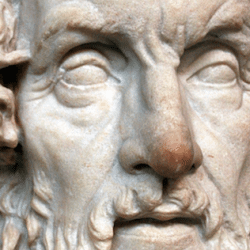Bonnie MacLachlan considers archaic Greece the The Age of Grace . Charis was everywhere: It “flickered when beautiful women sparkled; soldiers brought charis to their commanders when they fought well; charis graced appropriate behavior and speech and was a distinguishing mark of nobility; it was at the center of the feast; in the verses of love poets it sat upon the hair or the eyes of the beloved. For the epinician poets it crowned that moment of supreme glory when the athlete won and was celebrated in song. Indeed, it would seem that for early Greeks charis was present in all the high moments of life.”
Charis was a form of pleasure that brought joy, and was distributed by Charites , the three Graces. What they gave “was always of a social nature . . . . In praise poetry they awarded the charis of undying fame to a successful athlete, reciprocating the glory he had brought to the community. Their social importance was familiar to Aristotle, who advised the erection of a temple to the Charites in a prominent place in the city, to ensure reciprocal giving, for this, he says, is the distinguishing feature of charis . From the Charites, then, we learn that charis -pleasure was not private: It entailed enjoyment that was mutual, reciprocal.”
Paul was a long way from MacLachlan’s “age of grace,” but did his use of the word still carry something of this archaic frisson? One wants to believe so.











